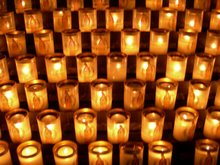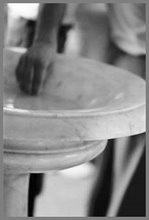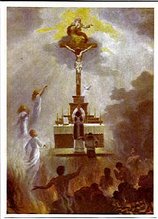
I have been wracking my simple mind lately about how to restrain my love of comforts. I simply love comfort - my comfortable bed, favorite foods, good wine, computer games...you name it I seek it if its comfortable. Trouble with this is, is hampers all my small efforts to grow in virtue. I have become a slave to my own desires for comfort and therefore am mired in this world. I am unsure if I even have the will to try to give up my comforts but turn instead to prayer asking and begging God to help me at least want to mortify my desires and senses. I came across this reading and plan to meditate upon it. I thought perhaps others may find it helpful as well.
"There is an old principle which goes: "Da mihi sanguinem et dabo tibi spiritum." Woe to those who are enemies of mortification and of the cross of Christ!
In one act of mortification one can practice many virtues, according to the different ends which one proposes in each act, as for example:
1. He who mortifies his body for the purpose of checking concupiscence, performs an act of the virtue of temperance.
2. If he does this, purposing thereby to regulate his life well, it will be an act of the virtue of prudence.
3. If he mortifies himself for the purpose of satisfying for the sins of his past life, it will be an act of justice.
4. If he does it with the intention of conquering the difficulties of the spiritual life, it will be an act of fortitude.
5. If he practices this virtue of mortification for the end of offering a sacrifice to God, depriving himself of what he likes, and doing that which is bitter and repugnant to nature, it will be an act of the virtue of religion.
6. If he intends by mortification to receive greater light to know the divine attributes, it will be an act of faith.
7. If he does it for the purpose of making his salvation more and more secure, it will be an act of hope.
8. If he denies himself in order to help in the conversion of sinners, and for the release of the poor souls in purgatory, it will be an act of charity towards his neighbor.
9. If he does it so as to help the poor, it will be an act of mercy.
10. If he mortifies himself for the sake of pleasing God more and more, it will be an act of love of God.
In other words, I shall be able to put all these virtues into practice in one act of mortification, according to the end I propose to myself while doing the said act.
Virtue has so much more merit, is more resplendent, charming and attractive, when accompanied by greater sacrifice.
Man, who is vile, weak, mean, cowardly, never makes a sacrifice, and is not even capable of doing so, for he never resists even one appetite or desire. Everything that his concupiscence and passions demand, he concedes, if it is in his power to yield or reject, for he is base and cowardly, and lets himself be conquered and completely overcome, just as the braver of two fighters conquers the cowardly one. So it is with vice and the vicious -- the latter is crushed and the slave of his vices. Continence and chastity are therefore worthy of the highest praise, because the man who practices purity refrains from the pleasure which proceeds from nature or passion. Thus, the greater merit will be his the greater the pleasure he has denied himself. His merit will be the greater in proportion to the amount of repugnance he will have in conquering himself, in proportion to the intense and prolonged suffering he will have to undergo, to the human respect he will have to vanquish, and to the sacrifices he will have to make. Let him do all this and suffer all for the love of virtue and for God's greater glory. As to my exterior deportment, I proposed to myself modesty and recollection and in the interior of my soul my aim was continual and ardent occupation in God. In my work I aimed at patience, silence and suffering. The exact accomplishment of the law of God and of the Church, the obligations of my state of life as prescribed by God. I tried to do good to others, flee from sin, faults and imperfections, and to practice virtue."
In one act of mortification one can practice many virtues, according to the different ends which one proposes in each act, as for example:
1. He who mortifies his body for the purpose of checking concupiscence, performs an act of the virtue of temperance.
2. If he does this, purposing thereby to regulate his life well, it will be an act of the virtue of prudence.
3. If he mortifies himself for the purpose of satisfying for the sins of his past life, it will be an act of justice.
4. If he does it with the intention of conquering the difficulties of the spiritual life, it will be an act of fortitude.
5. If he practices this virtue of mortification for the end of offering a sacrifice to God, depriving himself of what he likes, and doing that which is bitter and repugnant to nature, it will be an act of the virtue of religion.
6. If he intends by mortification to receive greater light to know the divine attributes, it will be an act of faith.
7. If he does it for the purpose of making his salvation more and more secure, it will be an act of hope.
8. If he denies himself in order to help in the conversion of sinners, and for the release of the poor souls in purgatory, it will be an act of charity towards his neighbor.
9. If he does it so as to help the poor, it will be an act of mercy.
10. If he mortifies himself for the sake of pleasing God more and more, it will be an act of love of God.
In other words, I shall be able to put all these virtues into practice in one act of mortification, according to the end I propose to myself while doing the said act.
Virtue has so much more merit, is more resplendent, charming and attractive, when accompanied by greater sacrifice.
Man, who is vile, weak, mean, cowardly, never makes a sacrifice, and is not even capable of doing so, for he never resists even one appetite or desire. Everything that his concupiscence and passions demand, he concedes, if it is in his power to yield or reject, for he is base and cowardly, and lets himself be conquered and completely overcome, just as the braver of two fighters conquers the cowardly one. So it is with vice and the vicious -- the latter is crushed and the slave of his vices. Continence and chastity are therefore worthy of the highest praise, because the man who practices purity refrains from the pleasure which proceeds from nature or passion. Thus, the greater merit will be his the greater the pleasure he has denied himself. His merit will be the greater in proportion to the amount of repugnance he will have in conquering himself, in proportion to the intense and prolonged suffering he will have to undergo, to the human respect he will have to vanquish, and to the sacrifices he will have to make. Let him do all this and suffer all for the love of virtue and for God's greater glory. As to my exterior deportment, I proposed to myself modesty and recollection and in the interior of my soul my aim was continual and ardent occupation in God. In my work I aimed at patience, silence and suffering. The exact accomplishment of the law of God and of the Church, the obligations of my state of life as prescribed by God. I tried to do good to others, flee from sin, faults and imperfections, and to practice virtue."
~Autobiography of St. Anthony Mary Claret




















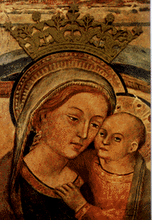
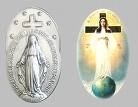




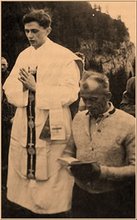
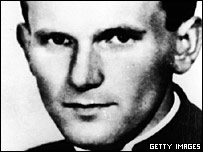
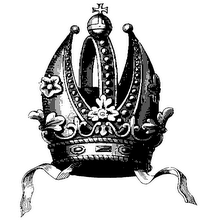

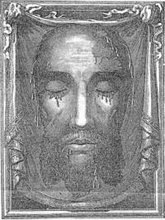


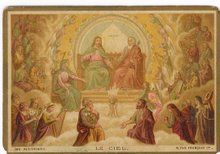




01.jpg)
























